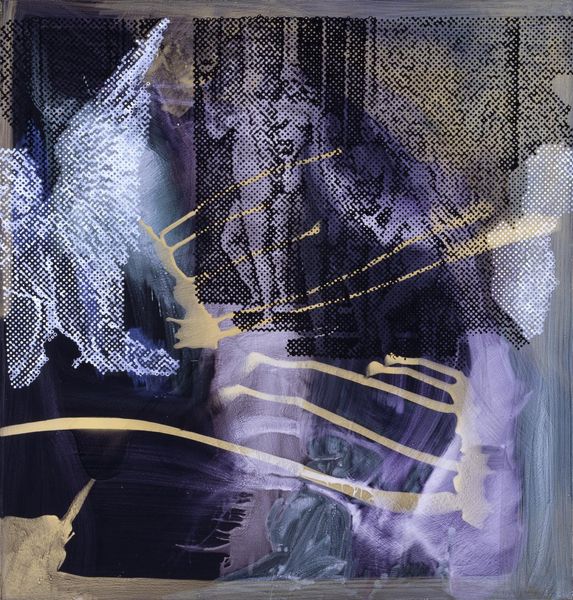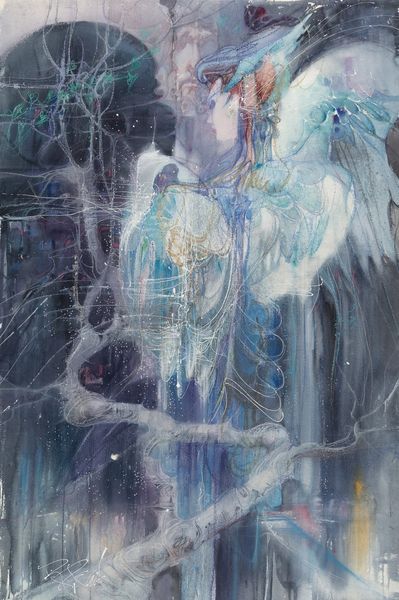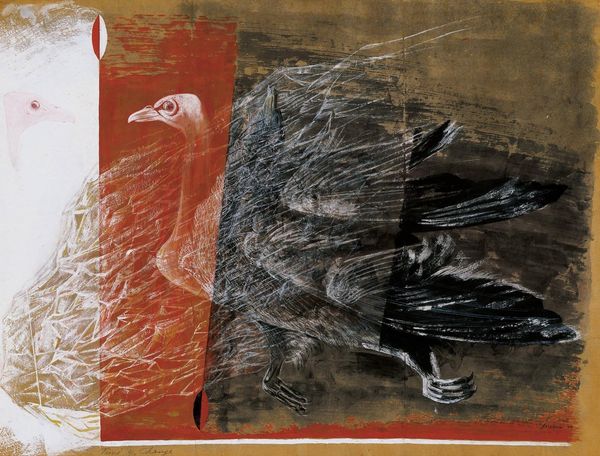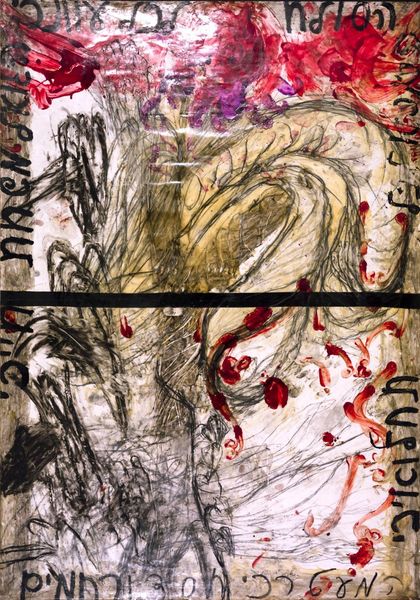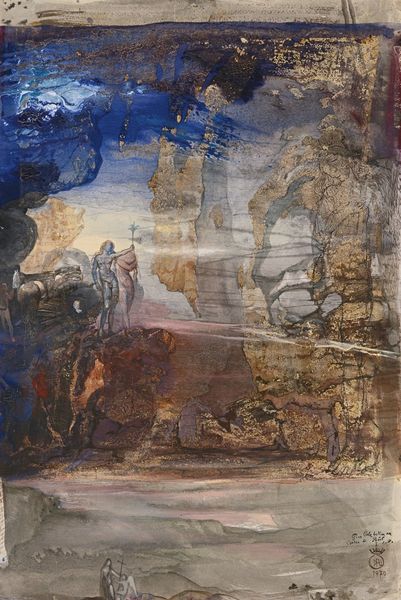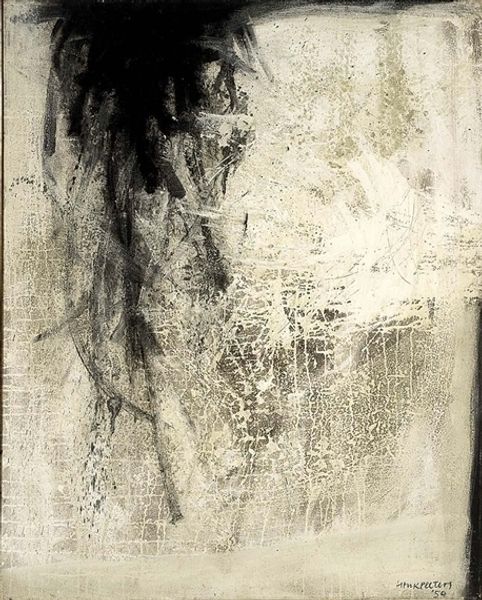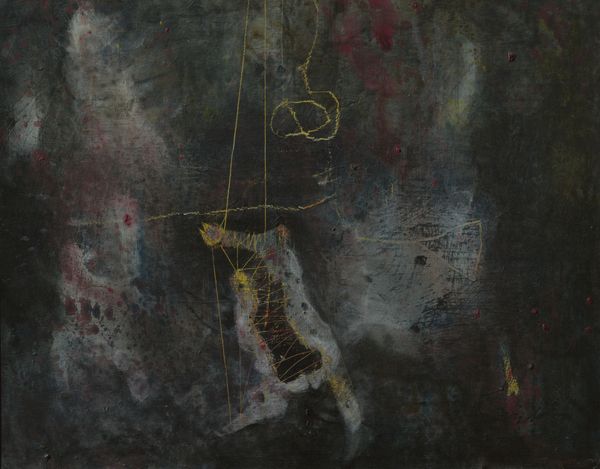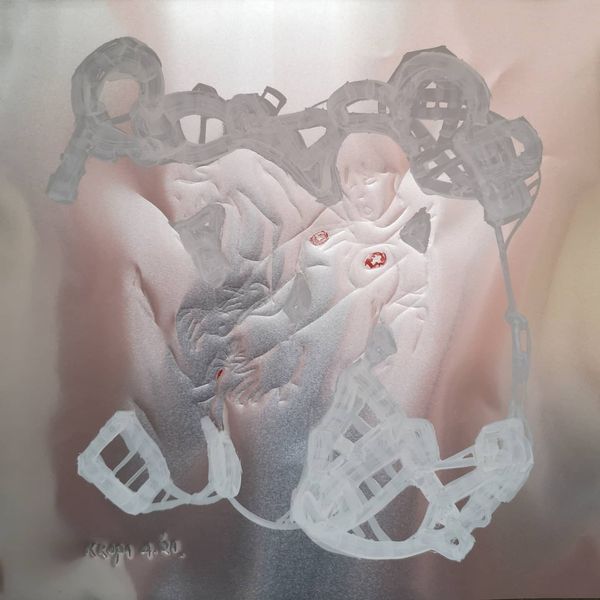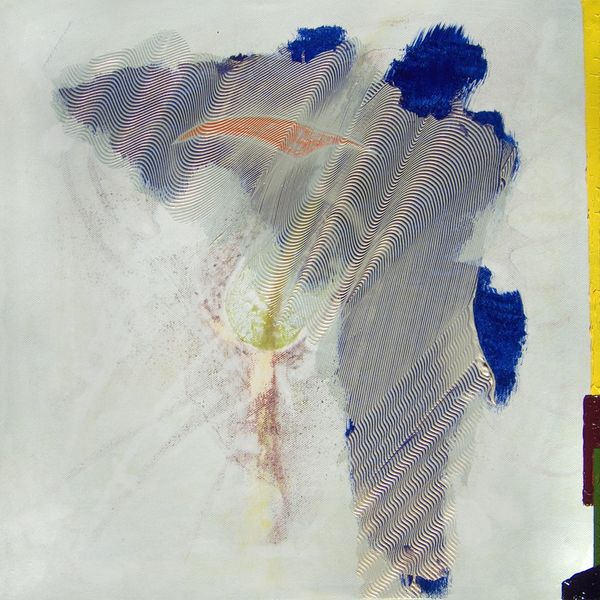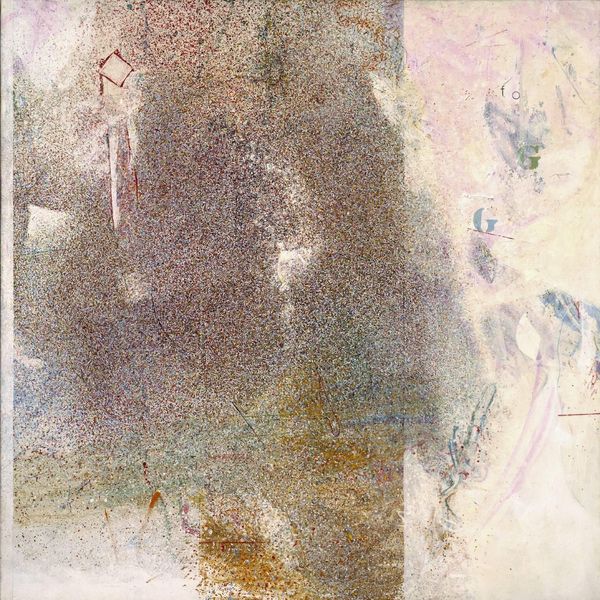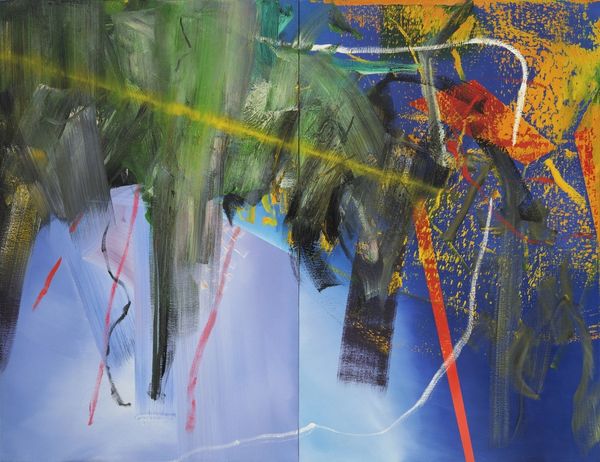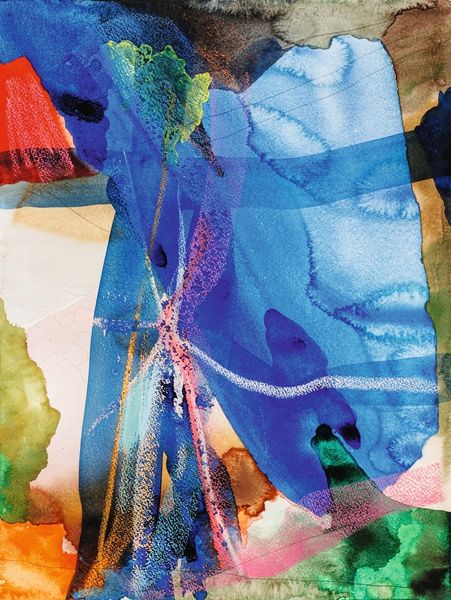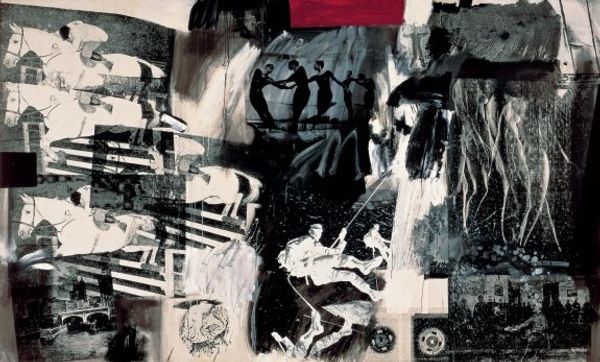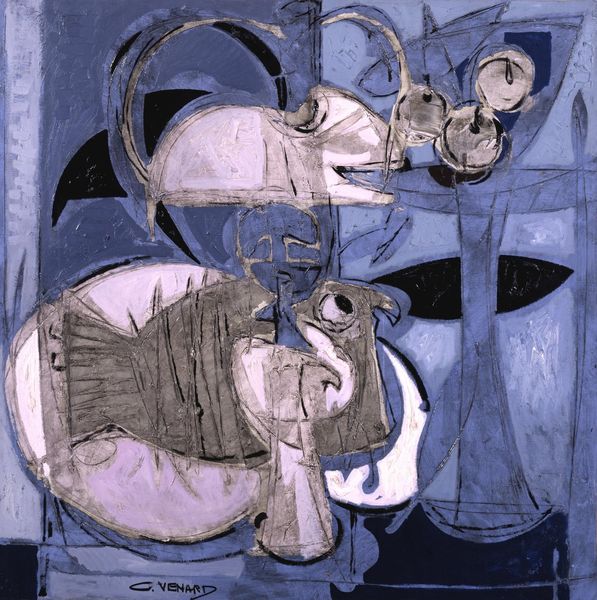
#
capitalist-realism
Copyright: Sigmar Polke,Fair Use
Editor: So, here we have Sigmar Polke's "Untitled (Square 2)" from 2003, a mixed-media piece. It strikes me as quite ethereal, almost like looking at a faded dream. All those layered images, those blues and gold... what jumps out at you? Curator: It's interesting you say that! It *does* feel like a dreamscape. I see Polke playing with perception here, layering recognizable images, like classical sculptures or angelic figures, beneath a veil of abstraction and almost industrial-looking dot patterns. Does it feel critical of anything, perhaps a commentary on art history? Editor: You know, that's something I hadn't considered. The juxtaposition of the classical and the seemingly industrial... a dialogue between tradition and modernity, maybe? Curator: Precisely. And it goes further, doesn’t it? Think of Polke's background, coming of age in post-war Germany. Those hazy images, struggling to emerge...could that be a metaphor for memory itself? For grappling with the weight of history and culture? The acrylic almost acts as a solvent blurring edges, inviting – or forcing – you to see what lies beneath the surface. What do you make of the gold streaks, by the way? Editor: Those gold streaks, hmm... They're almost violent against that muted background. Curator: They certainly jolt us! Think of gold, historically a symbol of the divine, here smeared almost carelessly, adding to that chaotic energy. It’s as if Polke is challenging our notions of beauty and perfection. Does it resolve the tensions or amplify them? Editor: I think it's the latter. All this makes you look a bit longer to see it’s all a bit like holding two magnets together the wrong way – all friction, no clean resolution. This feels like a crash course in seeing beyond the surface. Curator: Absolutely. The “unfinishedness” here is precisely the point. The Neo-Expressionists were all about embracing the raw, the messy, the uncomfortable truths of the human condition. The real questions always end up beyond the edge of the canvas.
Comments
No comments
Be the first to comment and join the conversation on the ultimate creative platform.
